Chicken-Safe Plants: Flowers, Herbs, Shrubs & Trees for a Healthy Flock
Discover the best chicken-safe plants for your flock. From flowers to herbs and trees, learn what’s safe, useful, and easy to grow.
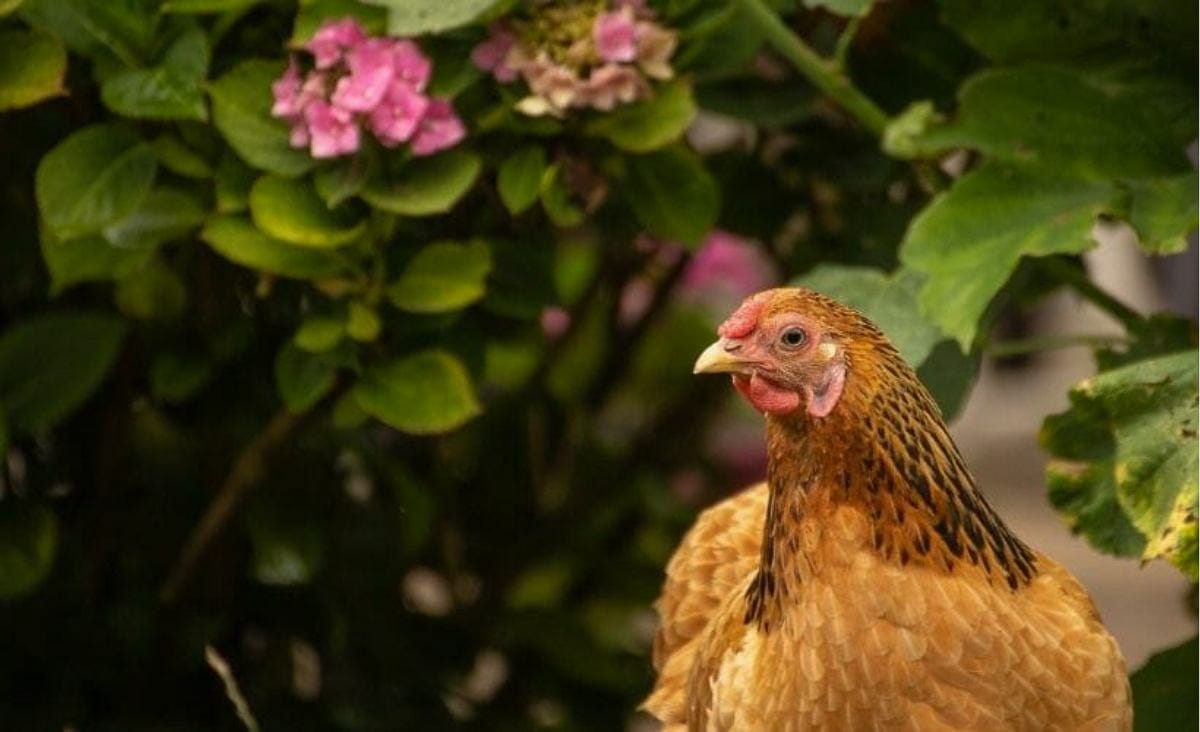
When I first started keeping chickens, I didn’t give much thought to what was growing around their run. If it was green, I figured they’d nibble it. Turns out, some plants are fantastic for chickens…and others can land them in trouble fast.
Over the years, I’ve planted herbs they can snack on, shrubs for shade, and flowers that brighten up the coop. Some they love (nasturtiums don’t last long here), and some they ignore completely. Over time I’ve figured out which plants actually help my flock, and which ones are just chicken yard filler.
In this post, you’ll find a complete guide to chicken-safe plants. We’ll cover flowers, herbs, vines, shrubs, and trees, plus I’ll answer the most common questions about specific plants like petunias, hostas, and Black Eyed Susans.
Why Plant Chicken-Safe Plants?
Adding plants around your coop isn’t just about making it pretty. Plants give chickens way more than just something to peck at. They soak up the shade and shelter when summer heat sets in, and they’ll naturally forage on safe greens, which helps supplement their diet.
Certain herbs—like mint and lemon balm—do double duty by keeping pests and even rodents at bay. And beyond the practical perks, plants give your flock enrichment. Chickens love to explore, scratch, and nibble at greenery.
And honestly, it’s a whole lot nicer to look out at greenery than a bare patch of dirt.
Chicken-Safe Flowers
Flowers add quick color and can even be a source of forage. I’ve found nasturtiums disappear almost as soon as they bloom, while marigolds linger a little longer.
Top safe flowers for chickens:
Bee Balm 3–9 Perennial
Begonia Annual
Black-Eyed Susan 3–11 Perennial
Coreopsis 3–9 Perennial
Calendula Annual
Daisy 5–8 Perennial
*Dandelion Annual
Day Lilly 4–8 Perennial
Echinacea (Coneflower) 3–9 Perennial
Impatiens Annual
*Marigold Annual (great for yolk color)
*Nasturtium Annual
Orchid 6–8 Perennial
Petunia Annual
Sunflower Annual (seeds are a favorite scratch treat)
Thistle 3–10 Perennial
Velvet Nettle 3–10 Perennial
Violet Annual
Zinnia Annual
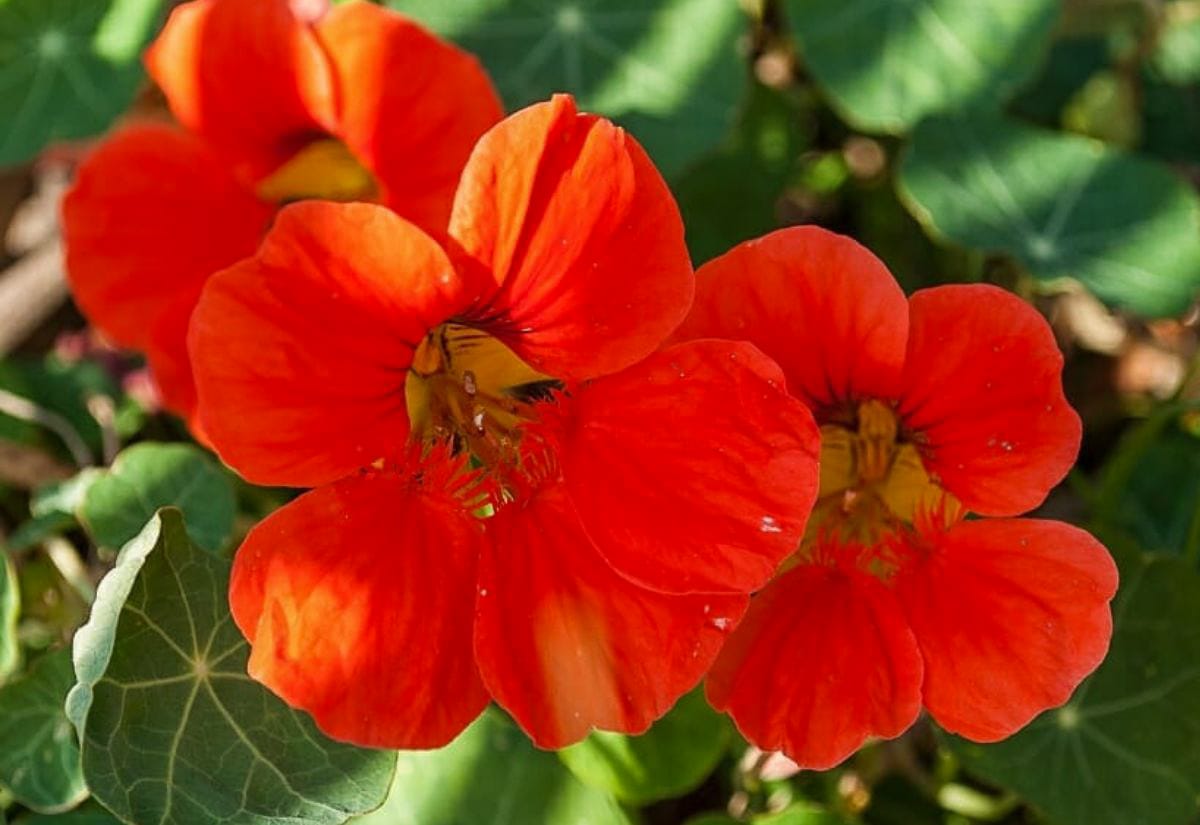
Tip: Plant extra nasturtiums if you want any for yourself—your flock will beat you to them every time.
If you don’t already have a setup, a small raised wooden garden bed kit makes it easy to create a chicken “salad bar” without taking over your main garden. The sides keep the soil in place and give you a tidy spot to plant herbs and greens just for your flock. Wood sides make it easy to staple on some chicken wire so the hens don’t dig everything up before it’s even sprouted.
Foliage Plants for Cover
If you’ve got an unsightly fence line or corner of the yard, foliage plants help soften the space while giving chickens something to explore.
Coleus Annual
Hens & Chicks 4–8 Perennial
Hosta 3–7 Perennial (my chickens devour the leaves in spring)
Lemongrass Annual (chickens don’t eat much of it, but it makes great shade clumps)
Yucca 4–11 Perennial
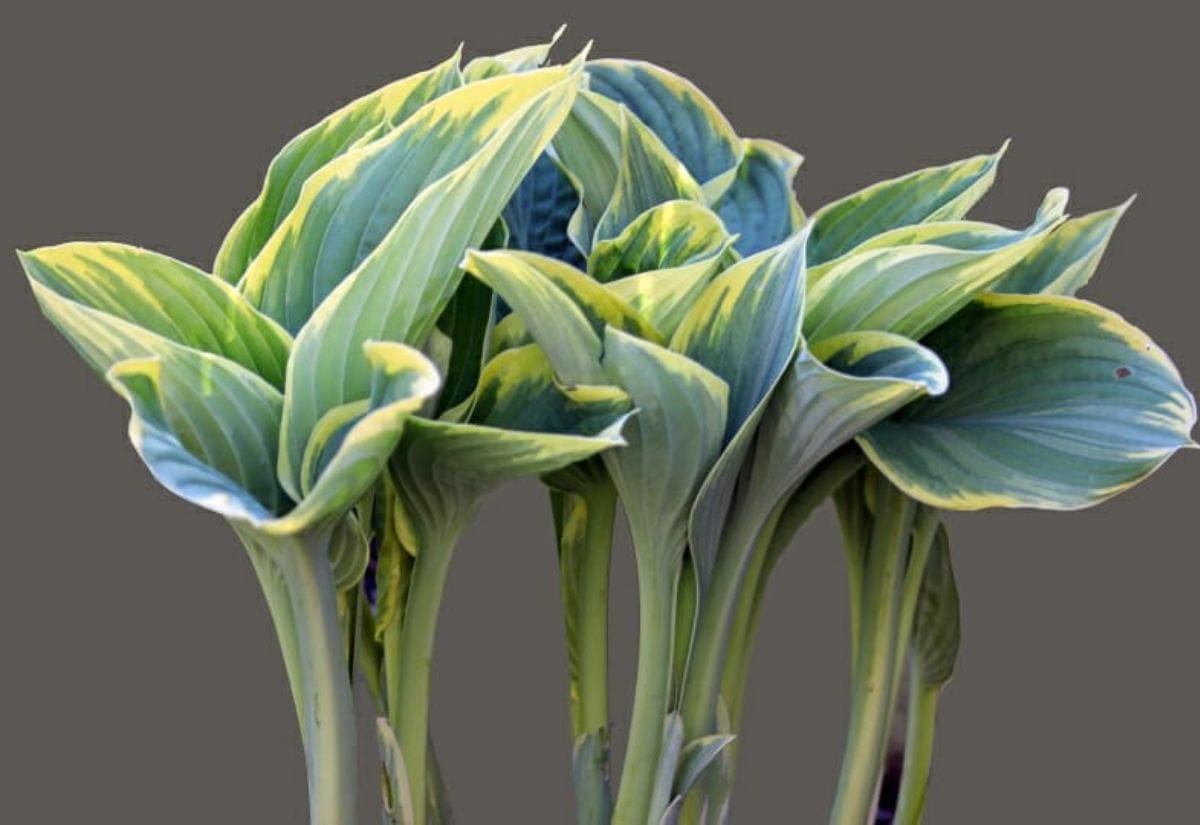
For protecting young plants, a roll of galvanized hardware cloth lasts for years and is one of those multipurpose homestead staples. I’ve used it for everything from lining raised beds to predator-proofing coop windows.
Herbs for Chickens
Herbs are a homesteader’s best friend—good for the kitchen, the coop, and the medicine cabinet. I always keep a mix of herbs near the run for snipping into feed or letting the hens trim themselves.
Basil Annual
*Catnip 3–9 Perennial (calming)
*Lavender 5–10 Perennial (calms stress + repels pests)
*Lemon Balm 4–11 Perennial (antibacterial)
*Mint 3–10 Perennial (good for digestion)
*Oregano 5–11 Perennial (antimicrobial)
*Parsley Annual (boosts circulation + feather regrowth)
*Rosemary 6–10 Perennial (repels insects)
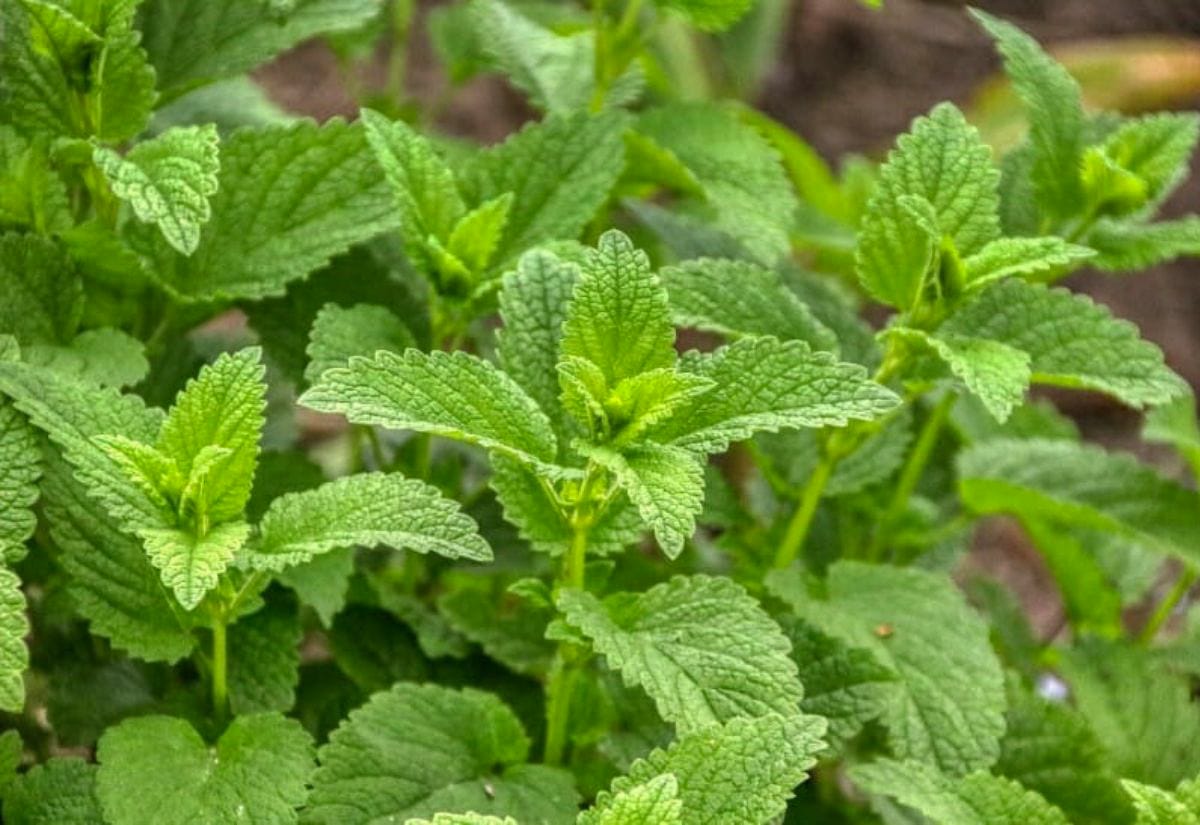
Pro tip: Let herbs go a little wild. The more you cut (or let your hens cut), the bushier they grow. Chickens are ruthless pruners, but in this case it works in your favor.
If you want to go deeper on practical, safe ways to use botanicals with your flock, read my guide to using herbs and essential oils with backyard chickens.
Vines for Shade
Vines create a living canopy in summer, then die back in winter to let sunlight in. A lifesaver in runs that turn into ovens by July.
Black Eye Susan 10–11 Perennial
Bougainvillea 9–11 Perennial
Grape Ivy Annual
*Nasturtium Annual
*Rose 3–11 Perennial
Swedish Ivy Annual
Virginia Creeper 3–9 Perennial
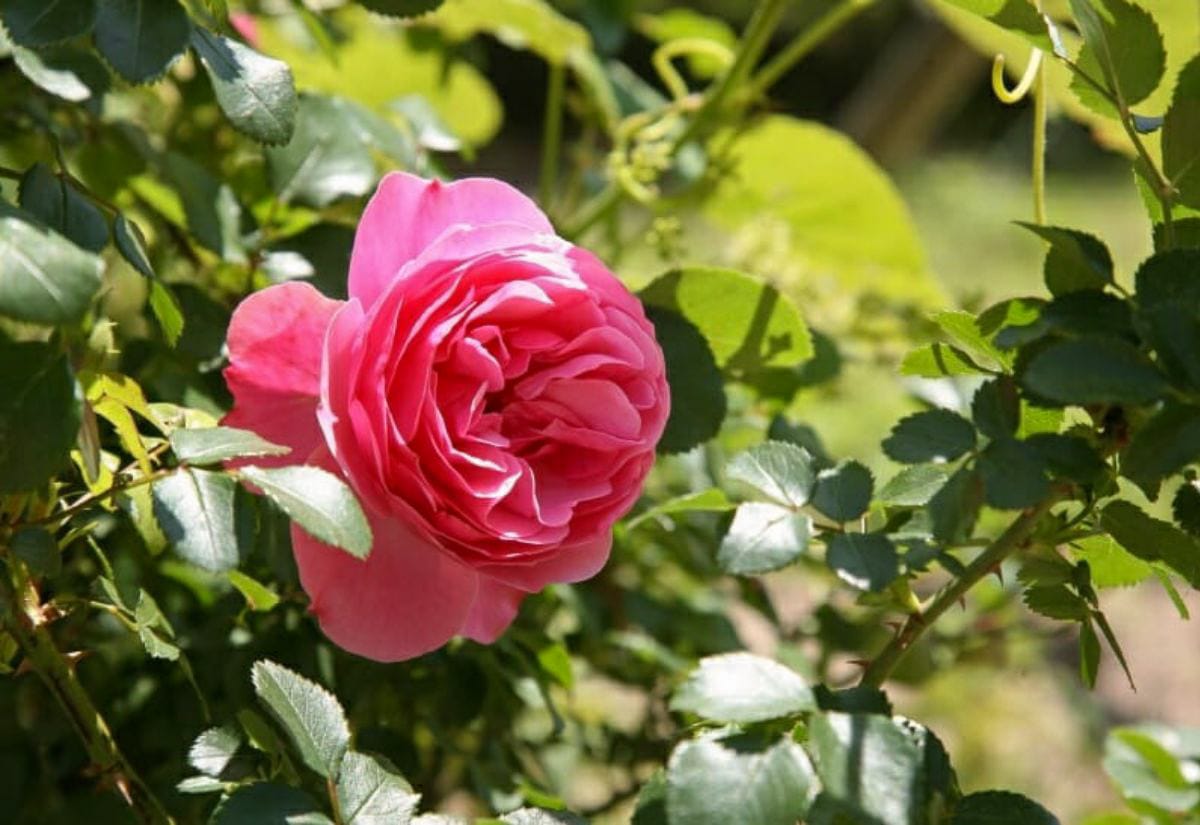
Chicken-Safe Shrubs
Shrubs not only add structure, they double as windbreaks and hiding spots when the flock wants a little privacy.
Bamboo 5–9 Be sure to plant the non-invasive variety!
Butterfly Bush 5–10
Dogwood 3–8
Fig 7–9
Forsythia 5–9
Gardenia 8–10
Hop Tree 4–9
Juniper 3–9
Lilac 2–9
Palm 8–11
*Rose 3–11
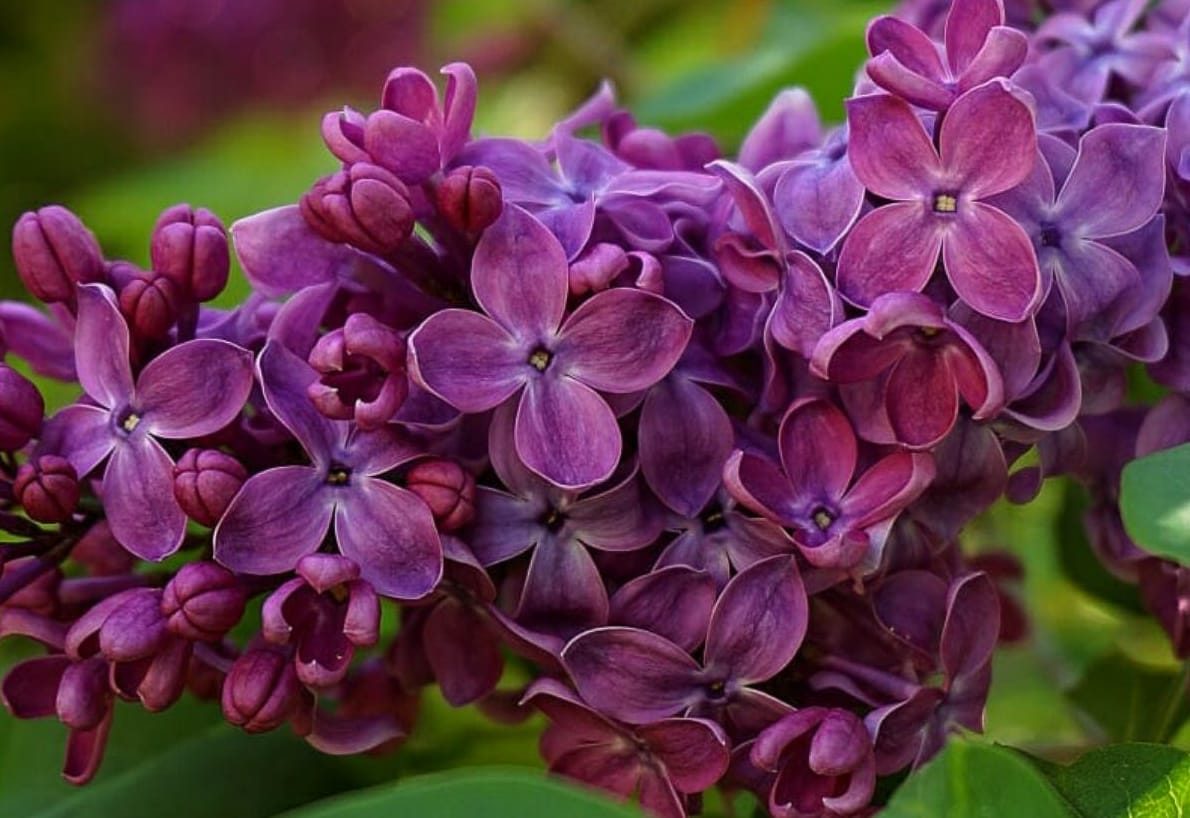
While you’re planning the green canopy, make sure the rest of your setup is working just as hard—this breakdown of the elements of perfect chicken coop design will help you place plants, shade, roosts, and run features where they’ll actually make life easier.
Trees for Shade and Foraging
Don’t worry if you’ve got fruit or nut trees near your coop—most are safe. My chickens don’t let a single apple or crabapple hit the ground without inspecting it, and I’ll admit, I’m just as grateful for the shade.
Ash 2–9
Citrus (all) Keep small amounts—too much can affect calcium absorption.
Crab Apple 3–8
Dogwood 3–8
Elm 2–9
Eucalyptus 8–10
Fig 7–9
Guava 9–12
Hawthorn 4–7
Hop Tree 4–9
Madrona 6–10
Magnolia 5–9
Manzanita 8–11
Palm 8–11
Papaya 9–10
Pine 2–9
Redbud 5–9
Sassafras 4–9
Willow 2–9 (depending on species)
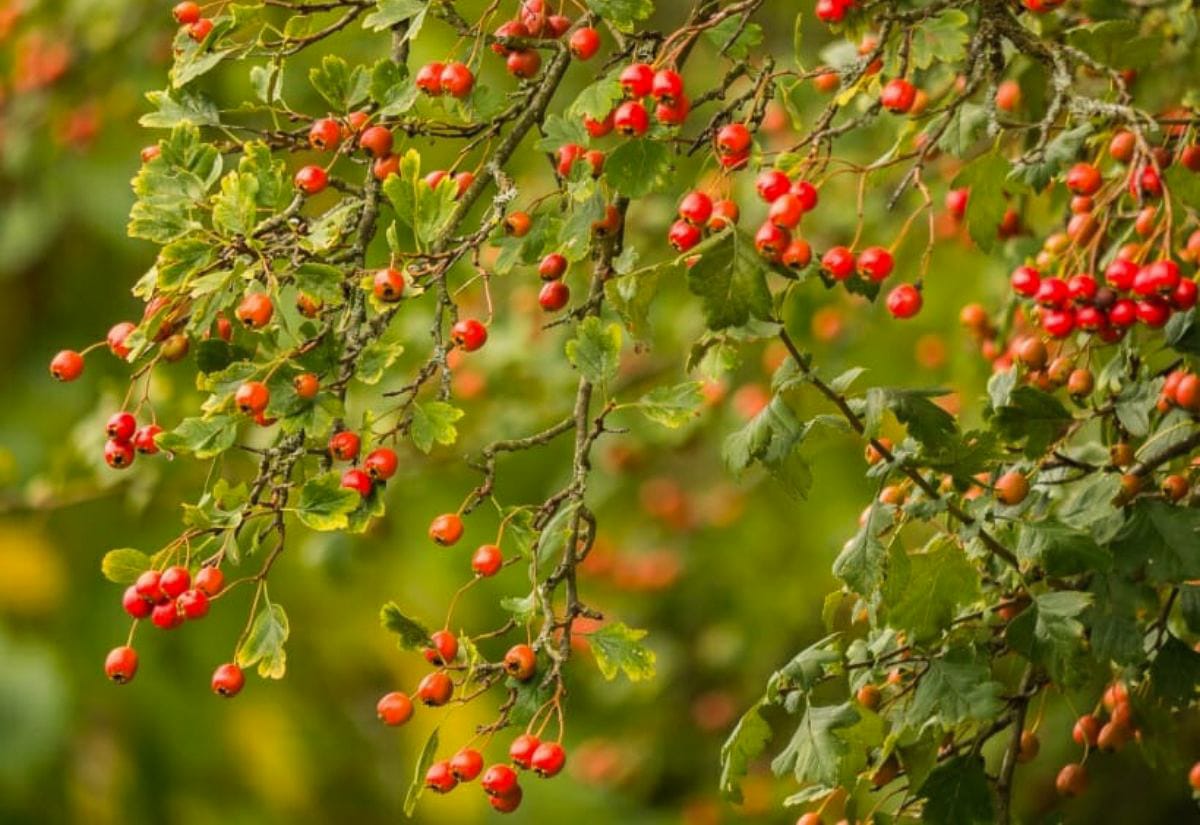
Heads up: If you plant young trees inside the run, protect the roots. Chickens love to dig.
Want an easy way to keep track of safe plants for your flock?
I put together a free one-page checklist of chicken-safe plants that you can print and stick right on the fridge or in your coop notebook. It’s a quick reference so you don’t have to keep scrolling back through the list. Download it here.
FAQs About Chicken-Safe Plants
Still wondering about specific plants? Here are the most common questions I hear (and that show up in search data).
Love this guide? Save it to Pinterest so you’ll have a handy list of chicken-safe plants whenever you need it.
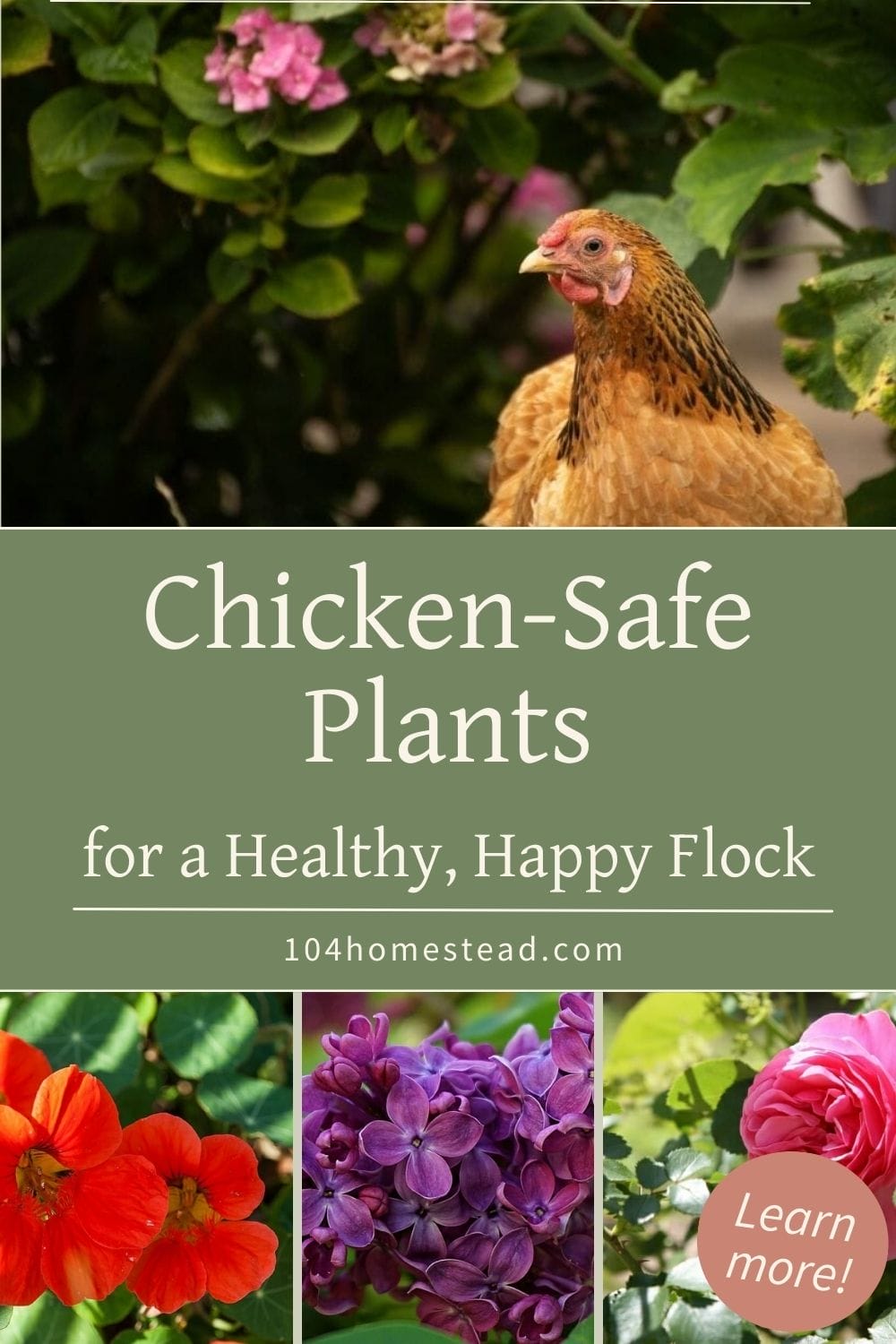
Planting chicken-safe flowers, herbs, and shrubs is one of those little upgrades that pays off in a big way. You get a beautiful yard, and your hens get enrichment, forage, and shelter.
I’ve learned that some plants will thrive, some will be eaten down to the ground, and that’s okay. It’s all part of the rhythm of chicken keeping. Start small, see what your flock actually eats, and go from there. Every chicken yard ends up with its own quirks—what thrives in mine might flop in yours, and that’s just part of the fun.
And because plants are only part of a safe yard, here’s the best way to protect chickens from predators in your backyard—simple upgrades that pair well with shrubs and thorny borders.
If you’ve tried any chicken-safe plants I missed here, let me know in the comments—I love hearing what works in other backyards.
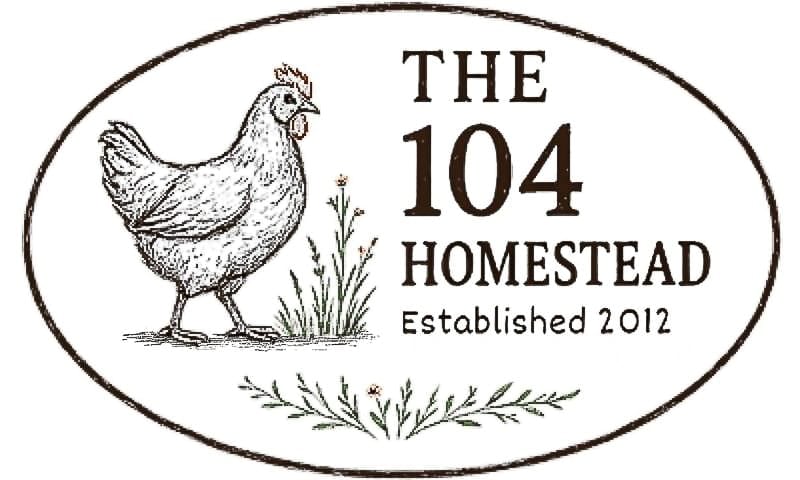
Are drift roses safe for chickens to eat?
Yes they are, but since they’re so pretty, you might want to block them off so the chickens don’t destroy them.
We have California poppies coming up everywhere. Are they safe for chickens? I make tea with them to help me sleep, but what about chickens?!! I never see them listed on pro or con lists!
California poppies contain isoquinoline alkaloids and are toxic to chickens in large quantities. An occasional peck won’t hurt them, but they shouldn’t be intentionally fed to them.
If the hawthorn berry SEED is deadly poisonous to humans, wouldn’t that also be considered poisonous to chickens?
Hawthorn seeds are toxic to humans, but they haven’t been found to be toxic to poultry or wild birds. Their digestive tracts are nothing like ours, so we can eat things they can’t and vice versa.
Hi I was wondering why you have Virginia creeper on both the good & bad list for chickens?
I would consider it safe because of the sheer quantity a chicken would have to consume to get even remotely ill. The people that assembled this list of dangerous plants were extra cautious in my opinion and experience.
Hi,
I’m new to having chickens and would like to landscape their run, so fun!
I’m glad to see that you have Juniper on the safe shrub list, but when I followed the big list of poisonous plants link, Juniper is also on that.
Can you clarify if there are certain varieties that belong on each list?
I’m really hoping to add some winter interest and snow barrier.
Thank you Melissa.
I considered it safe because chickens can’t possibly consume enough of the berries (the “toxic” portion) to be harmful. While technically toxic, it couldn’t possibly hurt them.
This is an interesting article. Can you tell me if Holly berries are also OK for chickens? Thanks!
Although toxic to humans and most pets, they are safe for chickens in moderation.
This list is amazing, but I did notice that you had Day Lilies on your safe floral plants. On other lists, I have seen that all lilies are toxic to chickens. Which list is correct?
Hello! You have juniper listed as a safe plant here on the page, but the backyard chicken page has it listed as toxic. Which one is it?
The leaves are actually good for chickens as they are high in antioxidants. The berries are high in sugar, which can cause stomach upset if large quantities, but chickens are highly unlikely to eat enough to reach this point. It’s sort of like how apple seeds have arsenic, but an adult human would have to eat hundreds of apples in one sitting to be poisoned.
Is the fruit of the Chocolate Vine ok to feed to chickens?
I believe it is.
Is African spinach safe for chickens to eat? It also goes by the name Malabar. I have a vegetable garden very small but Malabar grows great and I eat it so I would think you’d be safe for the chickens.
I believe it is, but I’m not 100% certain.
Do you have to cage the plants every year – regarding perennials? Or once they are established just let them go?
Thank
If they overwinter at a decent size, the chickens seem to leave them alone. If they die back completely, I usually toss some netting over them until they get established.
Can you feed chickens red hot poker? Many different birds feed on them but I want to be sure.
I found that my chickens love the forsythia bush I planted in the middle of their area. It gives them a shady place in summer but it’s flimsy enough that predators can’t perch on it to pick off the flock. With all the fertilizer they provide, it has grown very well.
I found this article while searching to see if forsythia was ok for my chickens to eat. They love the spent blossoms.
I like your post.I think i will try rooting some forsythia next spring for my chicken run for some added shade. I’M going to keep it potted because it multiples like crazy!
Hi. I think you are great & I wish I could do what you do. Can you please let me know if any of these plants are ok for chickens to eat? Heliotrope, Hyacinth, Lily of the Valley, Solomon’s Seal, Butterfly Ginger, Daphne, Sweet William Nicotiana, Sweet Woodruff, Woodland Phlox, Wood Hyacinth & Four O’clocks.
Thank you
solomons seal is fine, lily of the valley is toxic. I have woodland phlox and lily of the valley and solomons seal in my yard and the birds don’t touch what they know Is bad. if your chickens are not bothering them, then dont worry about it. they will ignore it. mine perch under a burning bush which is toxic for them to eat . they use it for shade and safety from hawks.
Hi Again,
Please introduce Azolla, to the group. It’s actually a pond or aquarium type plant that does many things including being used for feed, fertilizer, and bio fuel!
Thanks!
Do you know if this list is inclusive to most livestock?
Any help would be great! My friend has a horse, goat. chickens, bunnies, and guinea pig!
Thanks
Are evergreens safe for chickens to eat? I want to put a tree in their run. Thanks terri
You haven’t listed any berries.
Would this list be the same for ducks?
I would love a printable PDF version of these lists.i print up a lot of stuff and keep it in page protectors on a binder just for my birds.
All you have to do is copy and paste on a blank word doc and then print
Love your Blog !
seeing / finding it? Is there a list of harmful and or Deadly Plants for Chickens as well?
Thanks everybody!
Dudley
This is the list I commonly refer to (http://www.backyardchickens.com/t/627282/comprehensive-list-of-poisonous-plants-and-trees), but keep in mind that it isn’t detailed. “Poisonous” could refer to anything from digestive issues to fatal. We have quite a few things from that list on our homestead and our chickens have tasted and been just fine.
Is there anything I can put around my gardens to keep roosters out? We have to that come into our yard and they have my flower gardens destroyed.
I don’t, I’m sorry. I think a perimeter fence might be the only way to keep them out.
What does the asterisk connote?
Those are plants with medicinal properties for chickens. You can read more about that in my post about herbal chicken remedies.
Does this list apply to ducks as well? Thank you!